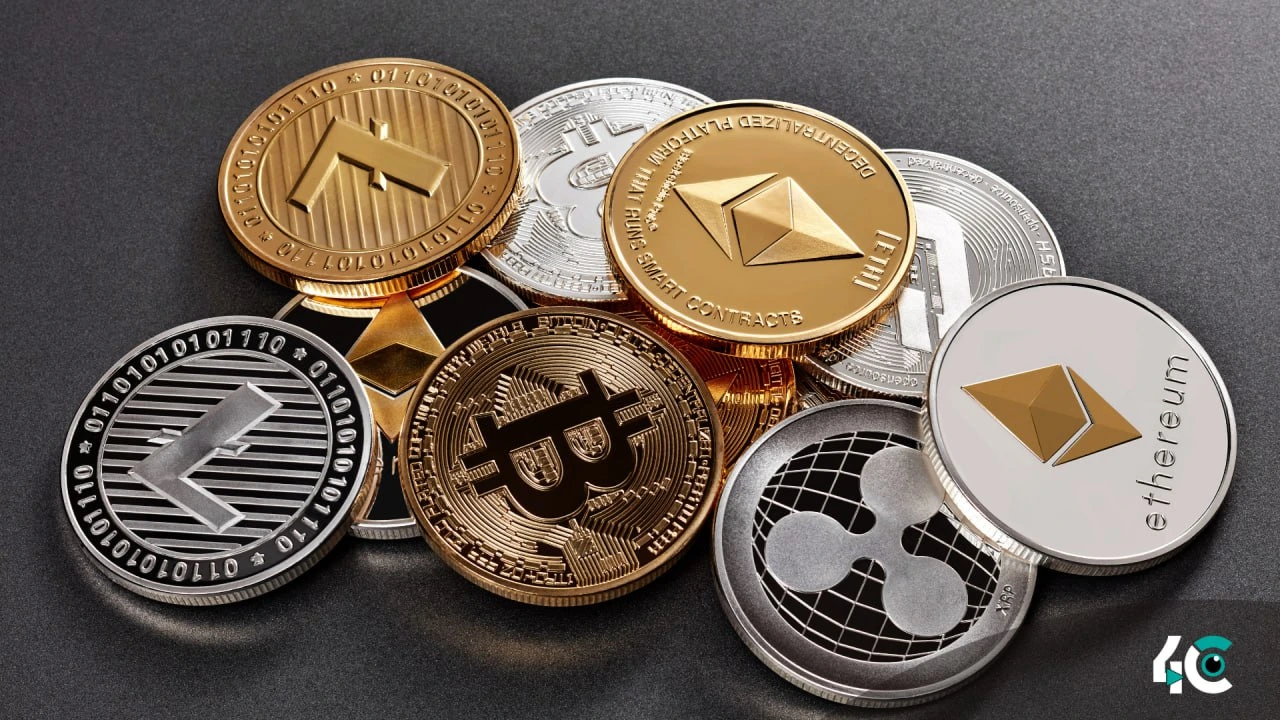The world of trading has transformed significantly with the rise of cryptocurrencies like Bitcoin. What was once a realm dominated by stocks and bonds has now expanded to include digital currencies that have disrupted traditional financial markets. At 4C Media, we are dedicated to providing accurate, up-to-date news on global finance, cryptocurrency, and Bitcoin, keeping you informed about the rapidly evolving landscape.
What is Cryptocurrency?
Cryptocurrency refers to a form of digital or virtual currency that uses cryptography for security. Unlike traditional currencies issued by governments (fiat money), cryptocurrencies operate on decentralized networks based on blockchain technology. The blockchain acts as a public ledger, recording all transactions and ensuring transparency and security. One of the key appeals of cryptocurrencies is that they are immune to government interference or manipulation, as no central authority controls them.
Since Bitcoin’s inception in 2009, thousands of other cryptocurrencies have emerged, each with unique features. Popular examples include Ethereum, Ripple (XRP), Litecoin, and Binance Coin. While some cryptocurrencies function as digital currencies for transactions, others like Ethereum also enable smart contracts, which automate and facilitate complex processes like loan agreements or supply chain management.
Bitcoin: The Pioneer of Digital Currency
Bitcoin, the first and most well-known cryptocurrency, was created by an anonymous entity known as Satoshi Nakamoto. It is often referred to as “digital gold” because of its deflationary nature and its increasing role as a store of value. Bitcoin’s value proposition lies in its ability to enable peer-to-peer transactions without the need for intermediaries such as banks.
As the price of Bitcoin surged from a few cents to tens of thousands of dollars in just over a decade, it has gained the attention of institutional investors, retail traders, and tech enthusiasts alike. The scarcity of Bitcoin (only 21 million coins will ever be mined) has created significant demand, leading to its immense price volatility. This volatility, however, provides ample opportunities for traders looking to profit from short-term price fluctuations.
The Evolution of Crypto Trading
The growth of cryptocurrency markets has ushered in a new wave of trading opportunities. Unlike traditional financial markets, cryptocurrency markets operate 24/7, providing round-the-clock opportunities for traders. Additionally, the emergence of various types of cryptocurrencies has expanded the trading landscape beyond just Bitcoin. Traders now have access to hundreds of cryptocurrency pairs and derivatives, enabling them to profit from both rising and falling markets.
Crypto trading has also given rise to a new breed of trading platforms and tools. Decentralized exchanges (DEXs) like Uniswap and PancakeSwap allow users to trade directly from their crypto wallets without intermediaries. On the other hand, centralized exchanges like Binance and Coinbase provide advanced tools, margin trading, and liquidity options that appeal to more traditional traders.
One of the most significant advantages of cryptocurrency trading is the relatively low barrier to entry. Traders can start with small amounts of capital and access global markets from anywhere in the world. However, it’s essential to remember that crypto markets are highly volatile, and while there is the potential for large profits, there is also a substantial risk of losses.
How Blockchain and Crypto are Changing Global Finance
Cryptocurrencies are more than just digital currencies; they are the foundation of an entirely new financial ecosystem. The underlying technology, blockchain, has implications far beyond digital money. It has the potential to revolutionize industries such as healthcare, supply chain management, and voting systems. However, its most immediate and profound impact is on global finance.
- DeFi (Decentralized Finance): One of the most talked-about developments in the crypto space is DeFi, a movement aimed at creating a financial system that operates without intermediaries. DeFi protocols offer services like lending, borrowing, and trading in a decentralized manner, making traditional banking services accessible to anyone with an internet connection.
- Cross-border Transactions: Cryptocurrencies allow for fast, low-cost cross-border payments, which is particularly beneficial for people in countries with unstable currencies or limited access to banking services. Bitcoin, for example, can be sent to anyone, anywhere, in minutes, without the need for a bank or payment service provider.
- Tokenization of Assets: Blockchain technology allows for the tokenization of real-world assets like real estate, art, and even stocks. This means that these assets can be divided into digital tokens and traded on the blockchain, enabling fractional ownership and liquidity for previously illiquid assets.
- Stablecoins: While cryptocurrencies like Bitcoin are known for their volatility, stablecoins are a type of cryptocurrency that is pegged to a stable asset, such as the US dollar. These digital currencies combine the benefits of cryptocurrencies with the stability of traditional currencies, making them an attractive option for people who want to use digital currencies without exposure to extreme price swings.
The Future of Crypto and Finance
As cryptocurrencies continue to evolve, their role in global finance will only grow. Some predict that cryptocurrencies could eventually replace traditional banking systems, while others believe they will coexist with fiat currencies as part of a hybrid financial system. Central banks are even exploring the possibility of issuing their own digital currencies, known as Central Bank Digital Currencies (CBDCs), which could further integrate blockchain technology into the mainstream economy.
In terms of regulation, governments around the world are still trying to determine the best approach to regulating cryptocurrencies. While some countries have embraced the technology, others have been more cautious or outright hostile. For example, El Salvador became the first country to adopt Bitcoin as legal tender, while China has cracked down on crypto mining and trading activities.
How to Stay Updated
Given the rapid pace of innovation and the complexity of the crypto market, staying informed is crucial for traders and investors. At 4C Media, we provide accurate and timely updates on cryptocurrency prices, market trends, and breaking news from around the globe. Whether you’re a seasoned trader or just getting started, our team is committed to delivering the latest insights on Bitcoin, Ethereum, and other emerging digital currencies.
To navigate the fast-changing world of cryptocurrency and trading, it is essential to follow trusted news sources, analyze trends, and engage in continuous learning. As the market grows and new technologies emerge, being informed will be key to capitalizing on new opportunities in the financial world.
In conclusion, the world of trading has expanded beyond traditional markets to include cryptocurrencies, creating new opportunities and challenges for traders. Bitcoin and blockchain technology are reshaping global finance, offering faster, decentralized alternatives to conventional financial systems. With the right knowledge and tools, this evolving market offers a wealth of potential for those who are ready to dive in.
Stay updated on all the latest crypto news with 4C Media, your go-to source for accurate and timely information.
















































